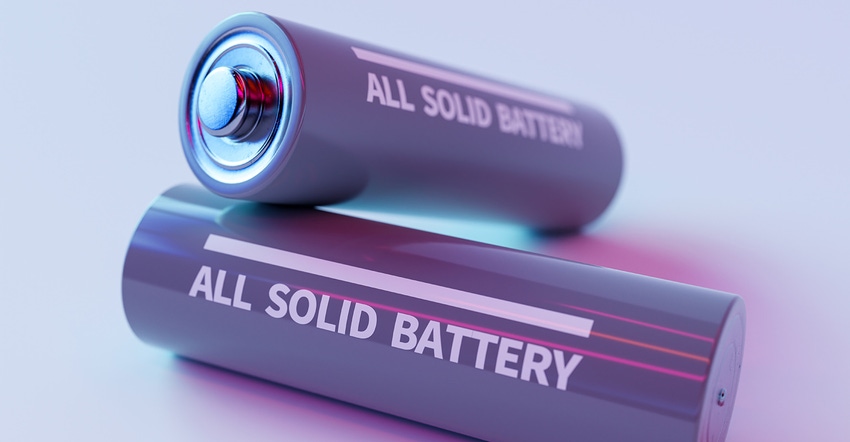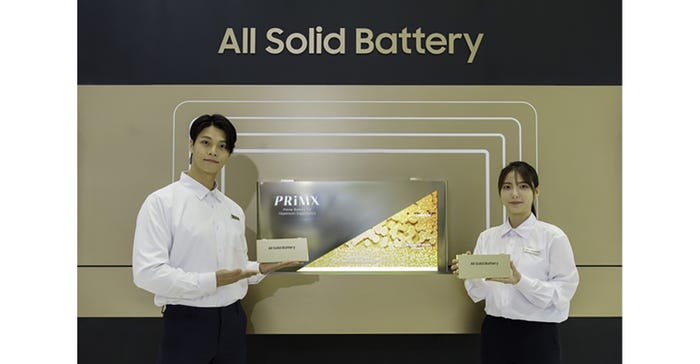Samsung's ASB: Energy Storage Breakthrough Revealed
Samsung SDI's new all-solid-state battery promises to revolutionize energy storage technology with its groundbreaking capabilities.

Samsung SDI made a significant announcement at InterBattery 2024, unveiling its novel all-solid-state battery (ASB), indicating a new era in energy storage technology. According to the company, the ASB features an impressive energy density of 900Wh/L, setting a new standard in the industry while pushing the boundaries of possibility in battery technology.
As part of the announcement, Samsung SDI outlined a new roadmap for the mass production of ASB by 2027 and, at the same time, ensuring efficiency and reliability. Leveraging proprietary solid electrolyte and anode-less technologies, the company claims to revolutionize the battery market with unparalleled energy density and longevity.
"Our preparations for mass-producing next-generation products of various form factors such as all solid-state battery are well underway as we are set to lead the global battery market with our unrivalled 'super-gap' technology," stated President and CEO of Samsung SDI Yoon-ho Choi.
"Our preparations for mass-producing next-generation products of various form factors such as all solid-state battery are well underway as we are set to lead the global battery market with our unrivalled 'super-gap' technology," —President and CEO of Samsung SDI Yoon-ho Choi.
One of the most striking features the company announced is the ultra-fast charging capability, with ASB reaching an impressive 80% charge in just 9 minutes. The company explained that this achievement is possible through optimized lithium-ion transfer paths and reduced resistance, paving the way for shorter charging times and greater convenience for consumers.

Samsung's ASB is capable of ultra-fast charging. Courtesy of Samsung SDI.
Samsung SDI plans to extend the lifespan of its batteries to over 20 years by 2029, doubling the current industry standard. Advancements in all-solid-state battery (ASB) technology hold the potential to revolutionize several industries, each benefiting from the unique advantages offered by this next-generation energy storage solution.
ASB for electric vehicles (EVs)
Solid-state batteries have long been hailed as a game-changer for electric vehicles due to their higher energy density, faster charging capabilities, and improved safety since they can significantly reduce the risk of fire associated with traditional lithium-ion batteries. With ASB, EV manufacturers could overcome some of the key limitations of current lithium-ion batteries, such as range anxiety and lengthy charging times.
ASB for consumer electronics
The consumer electronics industry stands to benefit greatly from the adoption of solid-state batteries. Devices such as smartphones, laptops, and wearables would see improvements in battery life, durability, and safety. Longer-lasting batteries mean fewer charges over the lifespan of a device, reducing environmental impact and enhancing user convenience. Additionally, faster charging times could transform the way consumers interact with their devices, enabling quick top-ups on the go without lengthy downtimes.
ASB for renewable energy storage
Solid-state batteries have the potential to revolutionize renewable energy storage as well, addressing one of the key challenges of intermittent energy sources like solar and wind power. ASB could enable more efficient energy storage solutions for grid-scale applications, allowing excess energy generated during peak production periods to be stored and discharged as needed.
ASB technology has the potential to revolutionize a wide range of industries, from transportation and consumer electronics to renewable energy and aerospace. Solid-state batteries could forge a path toward a more sustainable and efficient future across various sectors by addressing key challenges such as range, charging times, and safety.
About the Author(s)
You May Also Like





